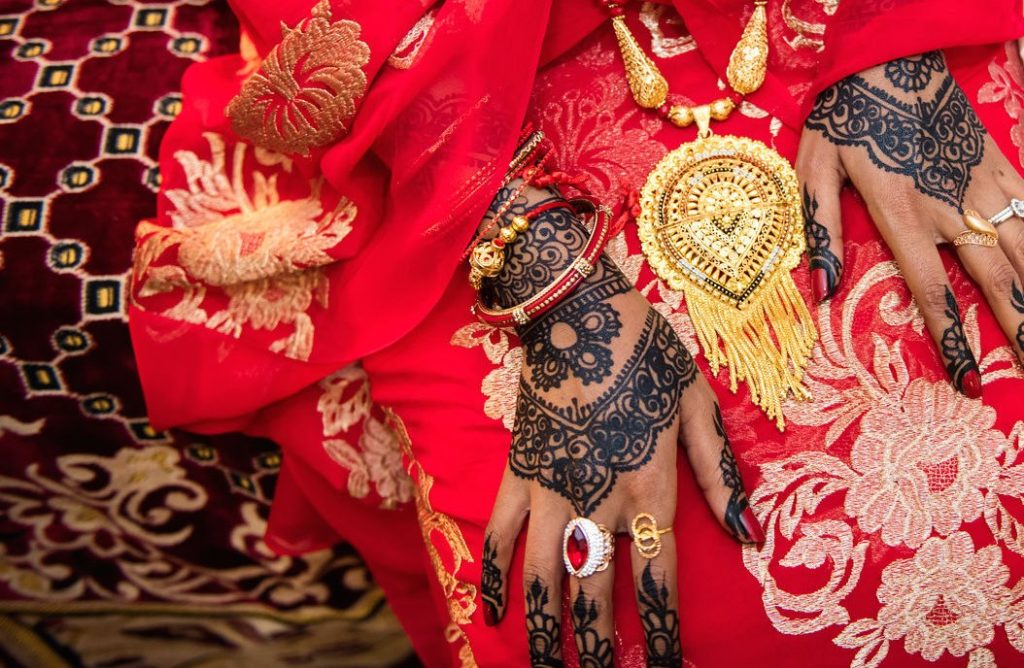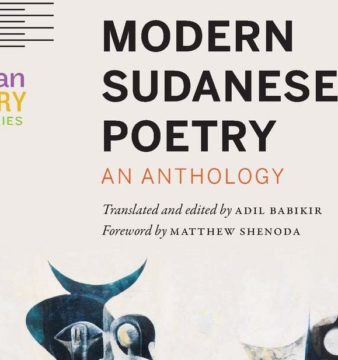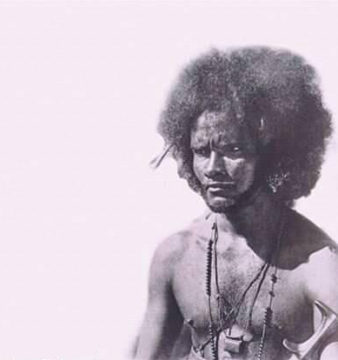Traditions

(Credit: NoePhoto)
She is in a room full of women who crowd her and expect her to understand
If there are reasons for these traditions, no one speaks of them
They point only to the expectations—
List them off one by one as she struggles to grasp the meaning of it all
A new bride needs to look beautiful for her husband, they tell her
Dress nicely for him, everyday. Put on the best jewelry you have. Brush your hair.
They scrub at her skin until it is light enough to please her mother
Until the blemishes and the beautiful ebony that was her grandmother’s gift to her are gone
Their hands rub oils that smell like history into her scalp and on her skin
She sits still while they laugh knowingly, these girls who aren’t much older than her
But they have already done this dance, and so they rattle off advice and opinions
And she listens to them because she is expected to
An aunt dabs perfume behind her ears, on her neck, at the crook of her elbows
She had seen the women grind and mix for days before the final product was ready
Now the sweet fragrance envelops her, that bride scent: concentrated and somehow familiar
They press vials of the homemade concoctions into her hands, their smiles playful
She does not carry herself the way the rest of them do,
With a certain air that says, I never forget who I am or where I come from
She only looks like them on the surface, and the shame of this is more stifling than her perfume
In a room that holds so many traditions, she feels the weight of her foreignness
She is not sure why she feels ashamed. It is acceptable to have more than one culture, after all
Mostly she just wants to please her mother, who doesn’t believe in an American heritage
Her mother, whose eyes shine with the bitter knowledge that her eldest will be leaving soon
Who comes into her room most nights and tells her things only mothers know
***
Her skin is glowing, radiant. She looks in the mirror and does not recognize herself
Wrapped in red and gold, she is closer to becoming like the rest of them
She still does not understand, but it is her wedding day and she is expected to pretend
A recurring thought: A new bride needs to look beautiful for her husband
Her thoughts are saturated with sandalwood and frankincense
Her cousins tell her not to cry, that her mascara will run if she does
Smile, they say, laughing. This is your day.
Is it? she wants to ask. But her smile is there, tugging at the corners of crimson lips
Her hands are heavy with bangles and lined with intricate henna designs
They are delicate hands, graceful even as they shake
Her smile is practiced now: wide and inviting
Look at me, this smile says. Today I am a bride. And I am Sudanese.
Nihal Mubarak is a self-proclaimed poet and short-story writer. As is the case with many second-generation immigrants, she struggles to preserve her Sudanese culture in a western society, and hopes to re-discover herself—and her heritage—in her writing.




